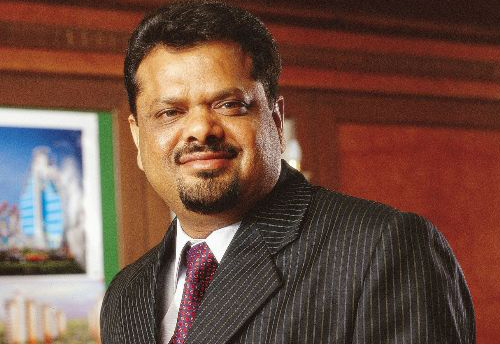By: Rohtas Goel, CMD, Omaxe
 Track2Realty Exclusive: In general branding in smaller towns is more focused on project. However, an equal emphasis on corporate branding should remain the strategy. It is very important to stress upon the brand to make the consumer aware of the strength of the company and assure them of the safety of their investment. This is where brand positioning is important in the initial stage. However, once the credibility is established, project branding assumes centre stage.
Track2Realty Exclusive: In general branding in smaller towns is more focused on project. However, an equal emphasis on corporate branding should remain the strategy. It is very important to stress upon the brand to make the consumer aware of the strength of the company and assure them of the safety of their investment. This is where brand positioning is important in the initial stage. However, once the credibility is established, project branding assumes centre stage.
I would also like to clear the air around the myth that expansion in smaller towns affect the corporate image and brand premium in the metro cities. As a matter of fact, we consciously made a decision to tap this market due to the growing saturation in metros. And we have done much better than others in sales and enhancement of our brand image.
Today, we are one of the biggest players in regions such as Rudrapur, Indore, Lucknow, New Chandigarh etc. This move has only made us grow from strength to strength and since most of the products are bought by end users, the word of mouth publicity has only strengthened our brand.
Our strategy in small towns is to keep the local mindset and trends in vogue and adjust our marketing and advertising strategy according to the target audience. The line is thin and not as diverse since public consciousness is on the rise. The understanding of brands is beginning to grow in these regions and people have begun to identify brands on the basis of their past performances and financials and the quality of the product delivered.
In the initial stages the apprehension that the tag of being outsider would be a challenge, and hence the need for more aggressive advertising against the local players who command trust factor has not been on merit. In fact, this aspect has neither been witnessed nor experienced by us.
For any buyer who purchases a property, the idea of brand, quality and performance of the developer is more important than anything else. In a short span of time, we have made a big difference in these markets. So, the entire concept and supposedly hurdle of being an outsider was never a problem.
In a nutshell, I must say I personally work with the conviction that consumer intelligence is as sharp on branding in smaller cities as in the metro cities. Why I maintain this as a corporate philosophy is that every buyer is an intelligent consumer for us.
One is more interested in what we have to offer to them. Advertising, word-of-mouth buzz and personal relations do work, but in marginal proportions; what matters ultimately is the product.





